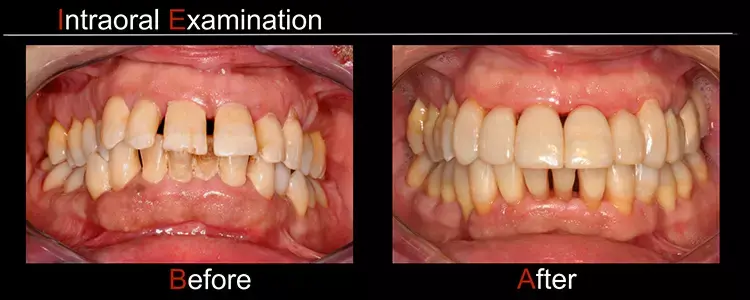- Home
- Medical news & Guidelines
- Anesthesiology
- Cardiology and CTVS
- Critical Care
- Dentistry
- Dermatology
- Diabetes and Endocrinology
- ENT
- Gastroenterology
- Medicine
- Nephrology
- Neurology
- Obstretics-Gynaecology
- Oncology
- Ophthalmology
- Orthopaedics
- Pediatrics-Neonatology
- Psychiatry
- Pulmonology
- Radiology
- Surgery
- Urology
- Laboratory Medicine
- Diet
- Nursing
- Paramedical
- Physiotherapy
- Health news
- Fact Check
- Bone Health Fact Check
- Brain Health Fact Check
- Cancer Related Fact Check
- Child Care Fact Check
- Dental and oral health fact check
- Diabetes and metabolic health fact check
- Diet and Nutrition Fact Check
- Eye and ENT Care Fact Check
- Fitness fact check
- Gut health fact check
- Heart health fact check
- Kidney health fact check
- Medical education fact check
- Men's health fact check
- Respiratory fact check
- Skin and hair care fact check
- Vaccine and Immunization fact check
- Women's health fact check
- AYUSH
- State News
- Andaman and Nicobar Islands
- Andhra Pradesh
- Arunachal Pradesh
- Assam
- Bihar
- Chandigarh
- Chattisgarh
- Dadra and Nagar Haveli
- Daman and Diu
- Delhi
- Goa
- Gujarat
- Haryana
- Himachal Pradesh
- Jammu & Kashmir
- Jharkhand
- Karnataka
- Kerala
- Ladakh
- Lakshadweep
- Madhya Pradesh
- Maharashtra
- Manipur
- Meghalaya
- Mizoram
- Nagaland
- Odisha
- Puducherry
- Punjab
- Rajasthan
- Sikkim
- Tamil Nadu
- Telangana
- Tripura
- Uttar Pradesh
- Uttrakhand
- West Bengal
- Medical Education
- Industry
Patients using selective serotonin reuptake inhibitors have high prevalence of acute periapical abscesses

Patients using selective serotonin reuptake inhibitors have a high prevalence of acute periapical abscesses suggests a new study published in the Special Care in Dentistry.
Depression and anxiety are major health problems impacting the quality of life of the affected individuals and can lead to significant disability. According to the World Health Organization (WHO), these psychological conditions are the second-highest cause of disability worldwide. Depression and anxiety are severe health problems affecting millions of individuals worldwide. Consequently, the use of antidepressants has constantly been on the rise. Selective serotonin reuptake inhibitors (SSRIs) antidepressant are now commonly used due to fewer side effects as compared to other types of antidepressants. This study aimed to assess the prevalence of periapical abscesses (PAs)in patients using SSRIs. Integrated data of hospital patients was used. Data from the corresponding diagnosis codes for SSRIs and acute PAs was retrieved by searching the appropriate query in the database. The different diagnoses were coded using the international coding system ICD 10.
Diagnosis was made by calibrated dentists in a hospital setting based on clinical examination and imaging data. The odds ratio (OR) for the prevalence of acute PAs and its association with the use of SSRIs were calculated and analyzed statistically. It was found that the prevalence of acute PAs was significantly higher in patients using SSRIs as compared to the other hospital patient population. The OR was 2.8 and the difference between patients using SSRIs and patients who do not was statistically significant (p < .0001). Under the conditions of this study, it appears that the prevalence of acute PAs is higher in patients using SSRIs.
Rotstein I, Katz J. Acute periapical abscesses in patients using selective serotonin reuptake inhibitors. Spec Care Dentist. 2024; 44: 143–147. https://doi.org/10.1111/scd.12789
Patients, selective serotonin, reuptake inhibitors, prevalence, acute periapical abscesses, Rotstein I, Katz J
Dr. Shravani Dali has completed her BDS from Pravara institute of medical sciences, loni. Following which she extensively worked in the healthcare sector for 2+ years. She has been actively involved in writing blogs in field of health and wellness. Currently she is pursuing her Masters of public health-health administration from Tata institute of social sciences. She can be contacted at editorial@medicaldialogues.in.
Dr Kamal Kant Kohli-MBBS, DTCD- a chest specialist with more than 30 years of practice and a flair for writing clinical articles, Dr Kamal Kant Kohli joined Medical Dialogues as a Chief Editor of Medical News. Besides writing articles, as an editor, he proofreads and verifies all the medical content published on Medical Dialogues including those coming from journals, studies,medical conferences,guidelines etc. Email: drkohli@medicaldialogues.in. Contact no. 011-43720751


